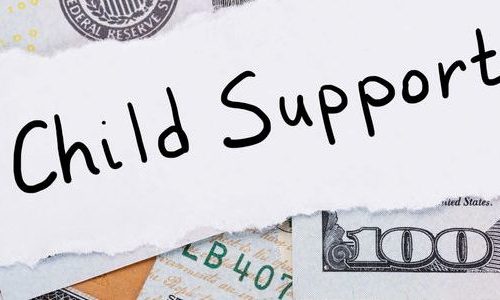Domestic Violence Laws in Georgia

This article discusses domestic violence including domestic violence laws in Georgia, and how to protect you and your family with a Temporary Protective Order (TPO) which is effectively a restraining order.
If you are in immediate danger you need to CALL 911 immediately!
What is Domestic Violence in Georgia
When people think of domestic violence they almost always think of a husband hitting his wife. The truth is, domestic violence is much broader than many people imagine. Per a statement on the Findlaw website, “Georgia’s Family Violence Act is a law designed to protect individuals who are abused by present or past spouses, parents of the same child, parents and children, stepparents and stepchildren, foster parents and foster children, or other persons living or formerly living in the same household.”1.
Domestic violence problems are an all too common occurrence in society. Domestic violence most often occurs when spouses fight, parents, and teenagers have altercations, and their are instances of elder abuse. Many 911 calls for domestic violence are for unexpected conflicts. Other times, calls to police are related to known issues such as a stalker who has threatened violence or families with a history of physical violence.
Georgia Family Violence Act
The Georgia Family Violence Act, O.C.G.A. 19-13-30 – 19-13-34, formally addresses the problem of domestic violence. In fact, domestic violence laws in Georgia are written to provide protection for victims and punishment for abusive people.
Why did domestic violence achieve attention of the State Legislature? Per the website of the Georgia Commission On Family Violence, “The General Assembly finds and declares that violence in Georgia homes among family members accounts for many serious injuries, deaths, and extensive physical and emotional damage to children and adults.”2.
Georgia Family Violence Law – O.C.G.A. § 19-13-1
As used in this article, the term “family violence” means the occurrence of one or more of the following acts between past or present spouses, persons who are parents of the same child, parents and children, stepparents and stepchildren, foster parents and foster children, or other persons living or formerly living in the same household:
- Any felony; or
- Commission of offenses of battery, simple battery, simple assault, assault, stalking, criminal damage to property, unlawful restraint, or criminal trespass.
The term “family violence” shall not be deemed to include reasonable discipline administered by a parent to a child in the form of corporal punishment, restraint, or detention.
Domestic Violence Protection – Getting a TPO
If you feel violence is likely to occur, you can hire a family law attorney who can help you get a restraining order in Georgia. It is possible to do it yourself, but because of its vital importance, you can’t risk delays from trying to figure out the process or make errors that may cause your request to be denied.
Don’t feel ashamed or embarrassed for seeking protection from abuse. Often, people in situations of chronic abuse end up killed or severely injured as the violence escalates. Abusers often intimidate, shame, or otherwise control victims into not calling police. Not calling police helps only the abuser.
What Can a TPO Do For Me?
A Temporary Protective Order provides for a wide range of restrictions and consequences for the abuser (or potential abuser such as a stalker). The Georgia Commission On Family Violence is the driving force behind domestic violence laws and protocol in Georgia.
Per their website, “A protective order, relating to acts of family violence, is described in Official Code of
Georgia Annotated ∋19-13-4 as follows:
The court may, upon the filing of a verified petition, grant any protective order or approve any consent agreement to bring about a cessation of acts of family violence. The orders or agreements may:
- a. Direct a party to refrain from such acts;
- b. Grant to a spouse possession of the residence or household of the parties and exclude the other spouse from the residence or household;
- c. Require a party to provide suitable alternate housing for a spouse and his or her children:
- d. Award temporary custody of minor children and establish temporary visitation rights;
- e. Order the eviction of a party from the residence or household and order assistance to the victim in returning to it, or order assistance in retrieving personal property of the victim if the respondent’s eviction has not been ordered;
- f. Order either party to make payments for the support of a minor child as required by law;
- g. Order either party to make payments for the support of a spouse as required by law;
- h. Provide for possession of personal property of the parties;
- i. Order a party to refrain from harassing or interfering with the other;
- j. Award costs and attorney’s fees to either party; and
- k. Order either or all parties to receive appropriate psychiatric or psychological services as a further measure to prevent the recurrence of family violence. 3“
Possible Criminal Charges for Domestic Violence
A domestic violence situation can bring multiple criminal charges. Among the charges that an abuser may face are:
- Interference with a 911 call
- Battery
- Assault
- Child Abuse
- Unlawful Restraint
- Stalking
- Violation of a Protective Order
- Criminal Trespass
- Marital Rape
What to Do If You Are Being Abused
Unless you are seeking resources for victims of abuse, calling crisis hotlines may largely be a waste of time. If you feel the need to call a crisis hotline then you are already recognizing you need help – legal help. You need to protect yourself and your family, not just seek a sympathetic ear. Here are things yo can do now to deal with domestic violence problems:
- Just abused or in danger now you need to call 911 immediately. If your attacker tries to stop you, let them know that trying to prevent a 911 call is a crime and will get them arrested.
- You or your family is being abused contact your local police to file a report. Any evidence you have (photos, recordings, threatening messgaes, etc.) will be useful to police.
- Seek legal protection by contacting a family law attorney for help getting a TPO, filing for divorce, or learning about resources for abuse victims.
- Seek counseling from a licensed therapist to help yourself or children deal with the trauma, fear, shame and other mentally damaging aspects suffered by abuse victims.
About Violent Abusive People
Many people who are physically abusive are themselves victims of physical abuse, mental abuse, or extreme personal trauma. In many instances, these problems have led them to alcohol and substance abuse problems. Such circumstances do not, in any way, justify their abusive behavior. One thing to recognize is that they need professional help for their problems. While taking legal action may seem to be creating a new set of problems, in the end your actions may help the abuser change their life. A family law or criminal court may require an abuser to complete anger management counseling, Alcoholics Anonymous, and substance abuse counseling. If children are involved, these changes could also have a positive affect on mending relationships.
Will the abuse be just a one-time thing? Probably not. Once a person crosses the line between disagreement and physical violence there is no longer a line. From that point forward, physical violence has become a probable part of future disagreements – especially if alcohol or substance abuse is involved.
The only logical thing to do is to get away from the abuser. Hopefully, the abuser will feel remorse and regret, and immediately seek counseling and therapy to change their behaviors. The problem is that most abusers refuse to take responsibility for their actions. They are often very good manipulators who manage to make the victim feel responsible for the problem, or get the victim to feel sorry for them because they can’t help it. Abusers do anything required to maintain control, secrecy, and hide their behaviors.
Don’t expect an abuser to change on their own. Perhaps at some point you can convince the abuser that getting professional help is important. Don’t be surprised if this triggers a very bad response, or feel that you need to take on the burden of their rehabilitation.
For now, you need to focus on the safety of you and your family. If this means the relationship ends, then so be it. Life is too short and too precious to spend in misery. Take action to have a better future.
Our law firm can help you with matters of family law, divorce, and criminal defense. In domestic violence cases, all of these practice areas are often intertwined. For this reason, our law firm is an exceptional choice for people stuck in this horrible situation. To learn more, please call 678-880-9360.
CREDITS and FOOTNOTES
- 1 Legal Writers, “Georgia Domestic Violence Laws”, March 21, 2018, Available from FindLaw
- 2 Staff, “O.C.G.A. 19-13-30 – 19-13-34”, February 14, 2012, Available from GCFV Website
- 3 Staff, “A Model Prosecutorial Protocol For Family Violence Incidents”, March 13, 2019, Available from Georgia Commission On Family Violence
- Photo By: Gerd Altmann , Available from Pixabay


